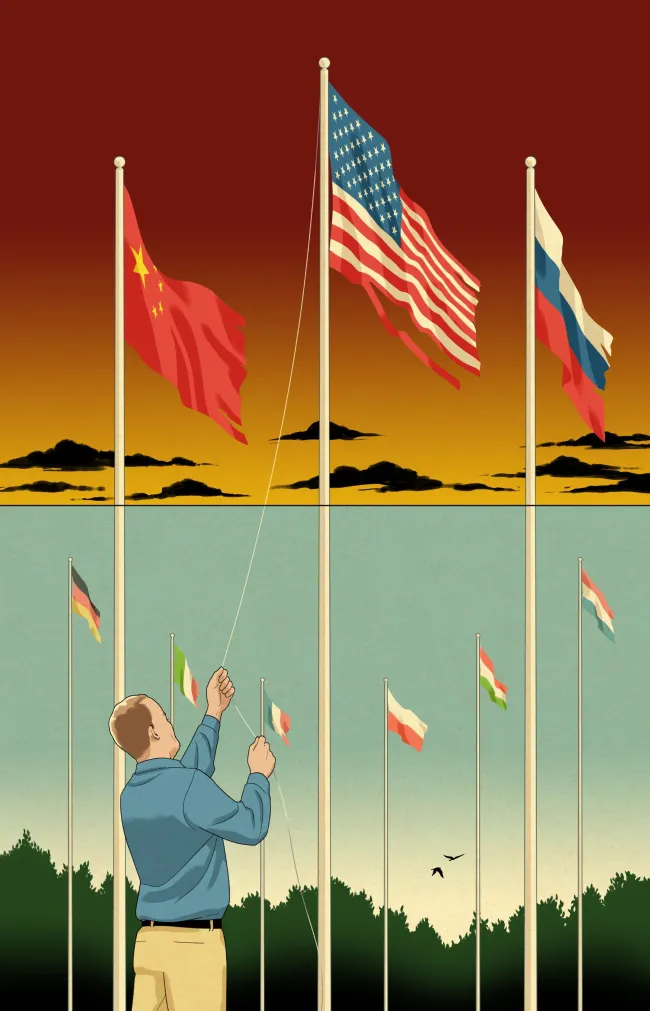
作者/Author(s): Mira Rapp-Hooper
網站來源/Source: Foreign Affairs
日期/Date: 10/29/2025
關鍵字/Keywords: 外交、經濟、美中
摘要:
美國兩黨對北京對美國及其盟友構成的威脅存在共識。然而,川普近日與習近平的關係趨緩,顯示美中政策可能發生轉向。無論川習峰會結果如何,中國都不會改變其全球野心,因此兩位領導人間的任何讓步都只是暫時性的,美中競爭的結構性現實仍持續存在。
- 雖然美國自歐巴馬政府時期開始警惕中國崛起,但川普才是美國積極對華政策的主導者,目標在於遏阻中國崛起。
- 拜登政府延續此趨勢,透過鞏固同盟關係、對中國實施新的經濟與技術限制,同時也積極振興美國戰略產業。
- 多數專家原本預期川普第二任期會採取類似路線;但只有部分預測正確。
- 雖然川普對中國發動關稅戰並升級技術出口管制,但在中國以稀土出口管制反制後,他很快就撤回了相關措施。
- 川普也試圖修補與習近平的關係,尋求與北京進行貿易談判,對關鍵科技做出重大讓步,並減少美國對台灣的支持。
- 對許多觀察家而言,川普態度的轉變更像是出於商業考量,而忽略了美國的地緣政治優先事項。
- 這種轉變是不可避免的,因川普的國安體系專家大多是他的支持者或不敢反對他的人,導致美國全體政府 (whole-of-government) 制衡川普本能決策的能力變弱了。
Summary:
There is a bipartisan consensus in the US regarding the dangers that Beijing poses to the US and its allies. Yet, Trump's recent rapprochement with Xi may indicate a shift in the US-China policy. Regardless of the outcome of the Trump-Xi summit, China will not change its global ambitions, making any concessions between the two leaders temporary and structural realities of the US-China competition permanent.
- Although the China-wary narratives began with the Obama administration, Trump is the chief architect of a more proactive US-China policy, aiming to halt its rise.
- The Biden administration continued this trend by bolstering alliances, imposing new economic and technological restrictions against China, and reinvigorating the American strategic industries.
- Most experts anticipated that Trump would follow a similar course in his second term; they were partially correct.
- While Trump waged a tariff war and escalated technological export controls against China, he quickly rolled back those measures after China retaliated with its own export controls on rare earths.
- Trump also tried to reconcile his relations with Xi by seeking trade negotiations with Beijing, offering significant concessions on critical technologies, and rolling back US support for Taiwan.
- For many observers, Trump's attitude change seemed more commercial in nature and ignored the US's geopolitical priorities.
- This shift is inevitable due to a less whole-of-government constraint on Trump's instincts, as he fills the US national security apparatus with his supporters or those who dare not oppose him.
- Beijing identified weaknesses in US policy inconsistency and recognized the economic leverage it could wield, thereby limiting the US's ability to wage economic war against China and expanding its geopolitical ambitions further.
